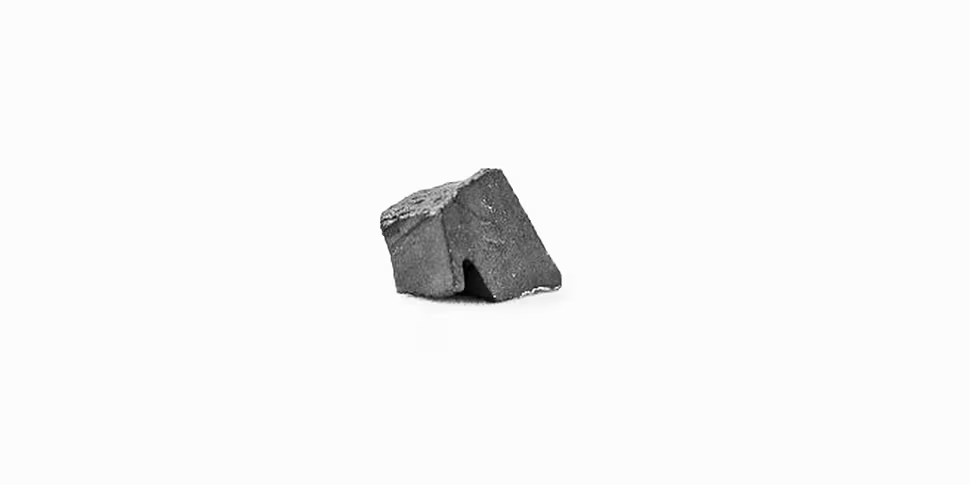Almost every computer, phone and tablet we own depends on minerals which can only be found in African regions which have been dogged by conflict and the control of these resources has become one of the factors fueling this violence.
Tackling this issue can be a matter of life or death. According to Intel militias and rebel groups who have been funded by the sale of these minerals have killed over 5 million people since 1998.
These mines are also a source of serious human right abuses - Amnesty International has documented children from the age of seven being forced to work in mines supplying multinational tech firms including Apple, Microsoft and Vodafone.
Last week, the EU approved legislation which requires new due diligence checks for importers of tin, tungsten, tantalum (the 3T's) and gold - with the aim of making sure that these minerals are not bought from mines and suppliers linked to armed groups in central Africa, mainly in Eastern Congo.
Fairphone is a Dutch start-up which has taken on the task of building a smartphone with only ethically sourced materials - but even it can't say that its devices are "100% fair yet."

Fairphone / Flickr
The company has been trying to source all of the components needed to create a smartphone without any potential conflict minerals entering its supply chain.
"The supply chains of electronic products are very complex and it is very hard to even investigate where the minerals that are used in smartphones or other products come from," a Fairphone spokesperson told Newstalk.
Mining in DRC / Enough Project
"The tech industry uses a lot of resources such as minerals - these are necessary in order to build products like smartphones or computers.
"This is fuelled by ever shorter life cycles of products that are hard to repair. There are some 7 billion smartphones on the planet - only 16% have been recycled," which contributes to demand for these minerals.
"It is difficult for consumers to immediately grasp the complexity of global supply chains and the problems that are associated with it," the start-up added.
The project began as an awareness raising exercise: "Fairphone was started in 2010 as a campaign to raise awareness about problems in electronics supply chains before it became a company in 2013. Since then we have been working hard to make this issue more known. More and more people realise that there are issues in supply chains, such as conflict, and are willing to invest in alternatives."
Its current device is the Fairphone 2 - it's a decent mid-spec phone which retails for €529. That's a bit more than a similar model from its competitors would cost - but one of its goals is to make a phone which will last longer.
Its 'modular' design makes it easy to take apart and means it can be repaired making it less likely that you will need to invest in a new handset if something goes wrong - which in turn reduces demand for these minerals.
"We want to reconnect people to the story that is behind electronic products. So there are people that want to make a difference and are aware of those problems that buy Fairphone," the company continued.
EU action
Fairphone describes the new EU rules as a "great first step" - but it adds that it will remain to be seen if it can make a real impact when it comes to dealing with this murky issue.
Fairphone highlights the fact that the EU law, "excludes small importers from the due diligence requirements" as being a significant potential loophole which could allow these minerals to continue to legally come into the EU.

The company supports buying from ethical producers in these areas and is worried that legislation could result in businesses being afraid to buy any raw materials from these regions, taking money out of fragile local economies.
"Mining sites in high-risk areas often provide a significant income for the surrounding communities. However it requires significant efforts, time and engagement to facilitate a long-term development from high to low-risk mine sites," it commented.

"In order to avoid whole regions depending on mining income will be drawn further into a poverty cycle, market access and investments in local communities are crucial. Market access itself requires that systems are in place to enable the tracing of a certain material to its origin and monitor the production circumstances," Fairphone added.
Self-regulation
Tech firms are already responding to shifts in approaches to policing conflict materials and consumer sentiment.
Last year Apple announced that its supply chain is now 100% audited - with the aim of ensuring that no minerals sold by militias end up in its factories.

"We could have very easily chosen a path of re-routing our supply and declared ourselves conflict-free long ago, but that would have done nothing to help the people on the ground ... We chose to engage with as many smelters as possible because the only way to have an impact here is to reach critical mass," Apple Chief Operating Officer Jeff Williams commented.
The company has stopped short of calling its goods conflict free, as it is yet to establish reporting procedures to police the very beginning of its supply chain and to ensure that no armed groups are benefiting from mineral sales.
Apple also supports finding clean producers in these regions rather than leaving them, citing the economic impact that this decision would have on local communities.
Intel is the only major global tech brand which says it is "using only Conflict Free mineral resources" in some of its microprocessors.
It's developed a tracking system which has established a network of 200 'conflict free' mines in the Congo working with the Enough Project - an NGO partnered with Amnesty International and Oxfam which is focused on ensuring that groups who abuse human rights do not profit from selling raw materials.












